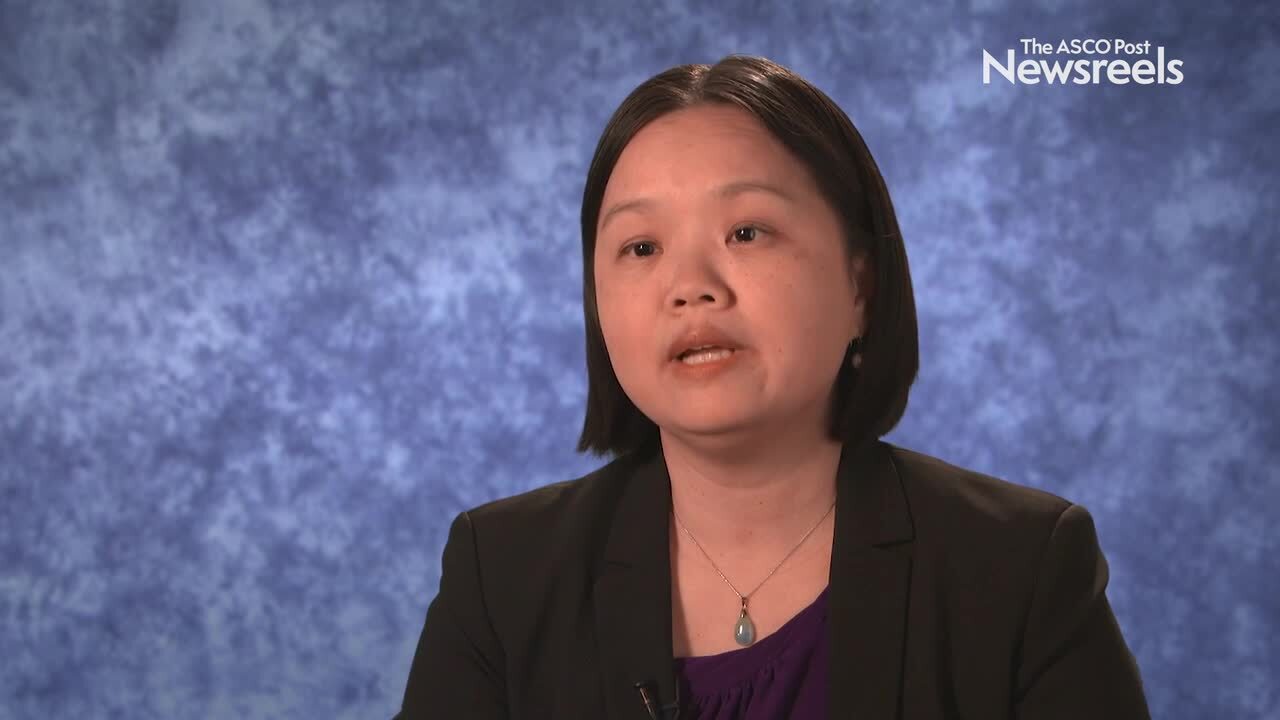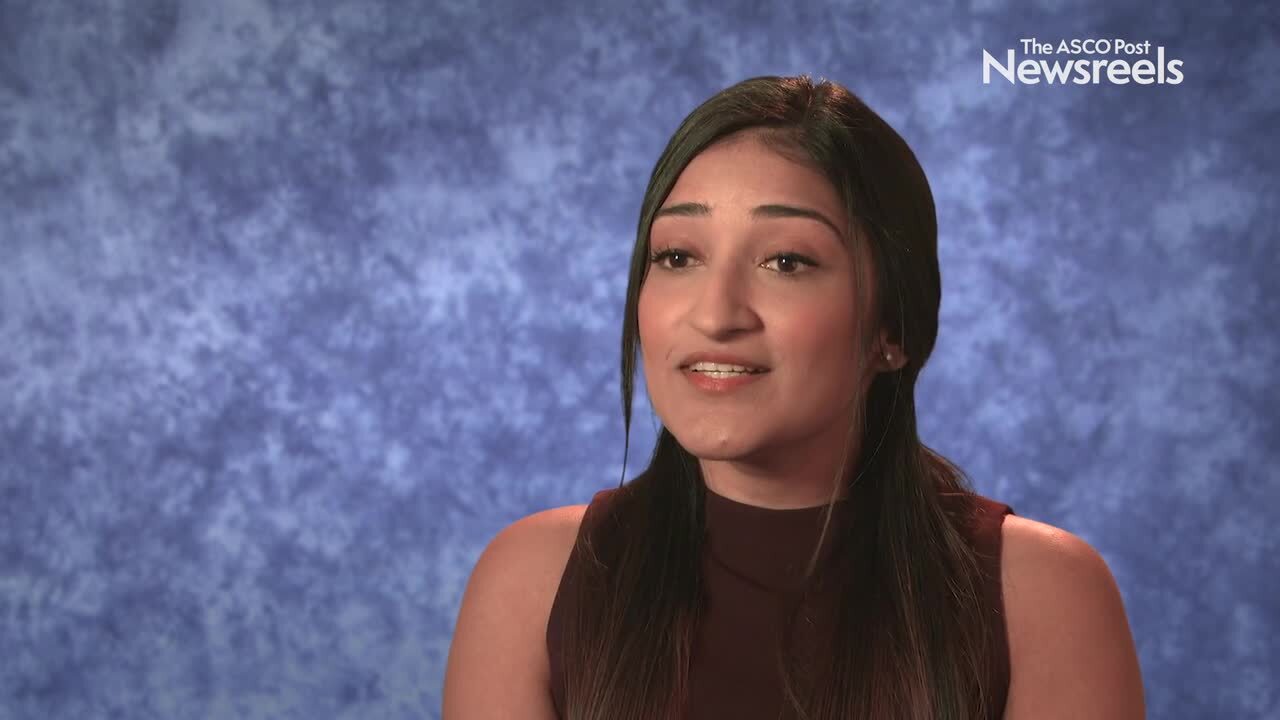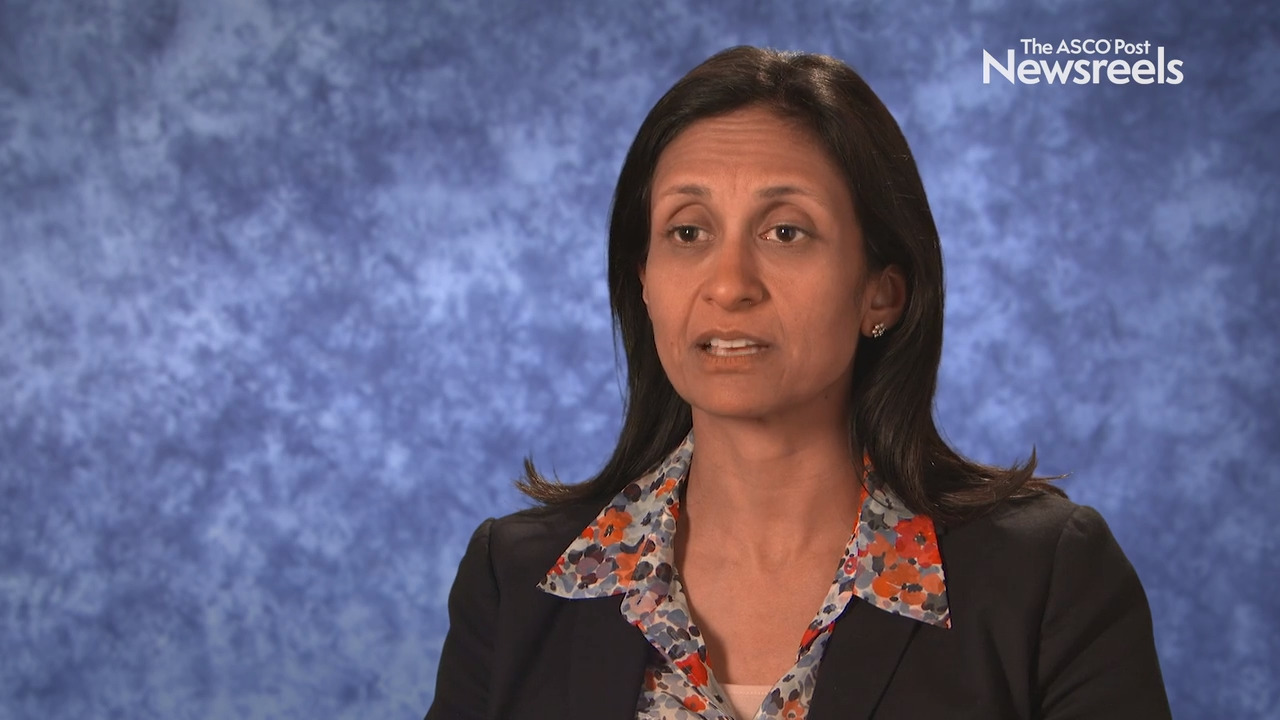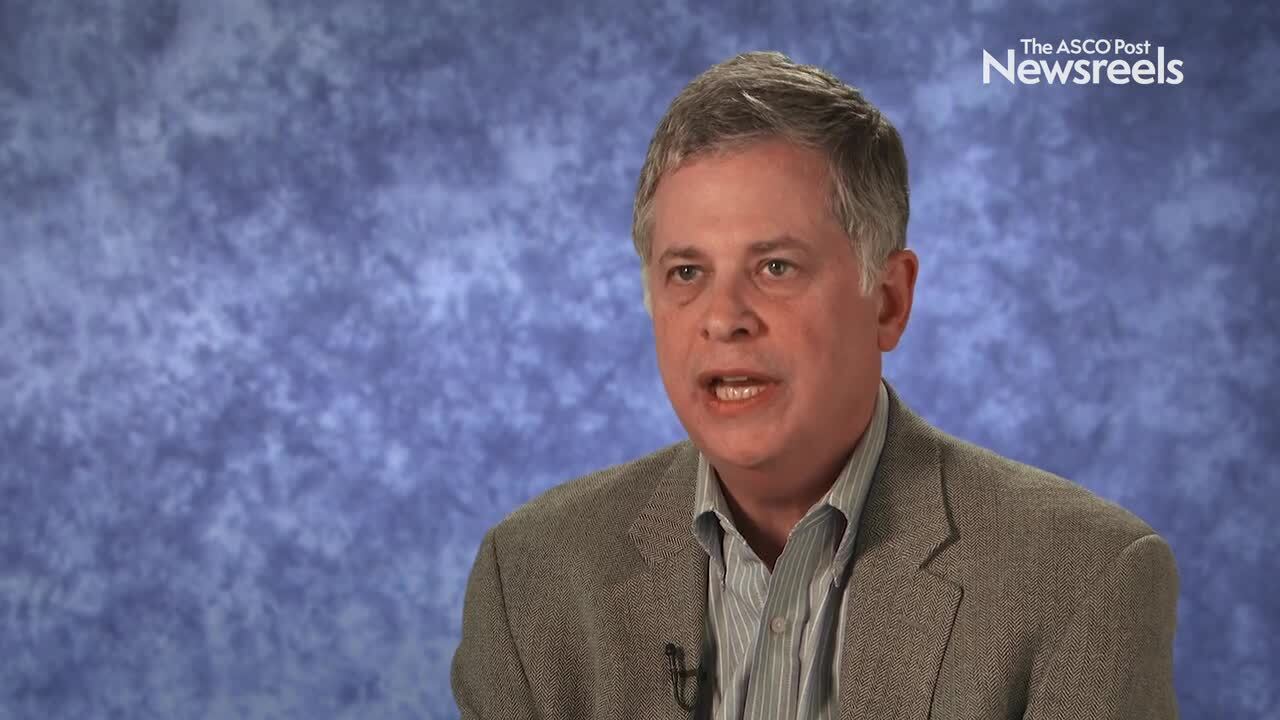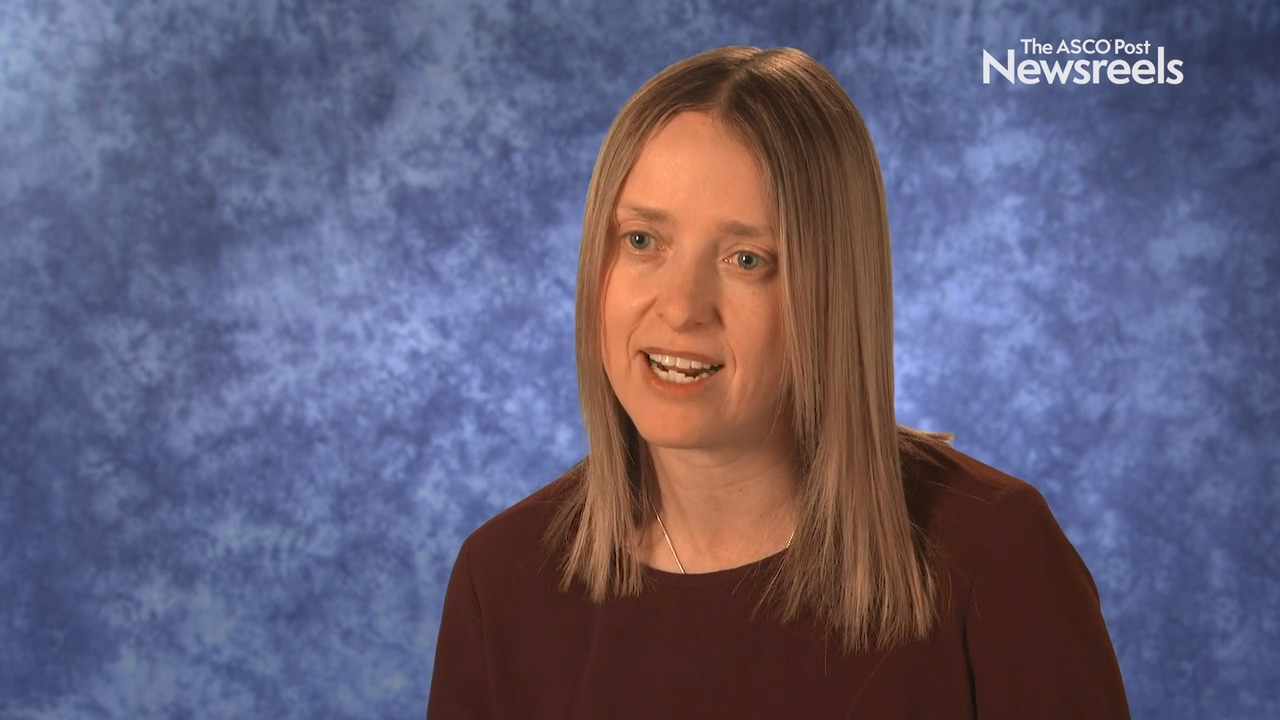Susan Y. Wu, MD, on Non–Small Cell Lung Cancer: Using an Online Tool in Treatment
2019 Multidisciplinary Thoracic Cancers Symposium
Susan Y. Wu, MD, of the University of California, San Francisco, discusses how patient exposure to treatment guidelines improved smoking cessation counseling and the use of molecular testing, and decreased the use of adjuvant chemotherapy in patients with early-stage disease (Abstract 5).
Ruqin Chen, MB, of the Mayo Clinic Florida, discusses early study findings that show molecular profiling with NF1, CD79a, and AKT3 could potentially improve prediction of progression-free survival in patients with lung cancer who are receiving immunotherapy.
Shraddha M. Dalwadi, MD, MBA, of Baylor College of Medicine, discusses the nearly 12% of potentially curable patients with stage I NSCLC who do not receive treatment, the various socioeconomic reasons why, and how some patients may benefit from minimally invasive therapies (Abstract 127).
Jyoti D. Patel, MD, of the University of Chicago, discusses immunotherapy for locally advanced NSCLC, selecting patients for these treatments, and the potential toxicities of combination therapies.
Martin Edelman, MD, of Fox Chase Cancer Center, discusses the limited retrospective data that indicate some patients with cancer and autoimmune disease (such as lupus or ulcerative colitis) can safely receive immunotherapy with checkpoint inhibitors.
Leora Horn, MD, of Vanderbilt University Medical Center, discusses the progress made treating extensive-stage small cell lung cancer, improvements in progression-free and overall survival, and the fact that it’s still difficult to determine which patients will benefit most from immunotherapy.
